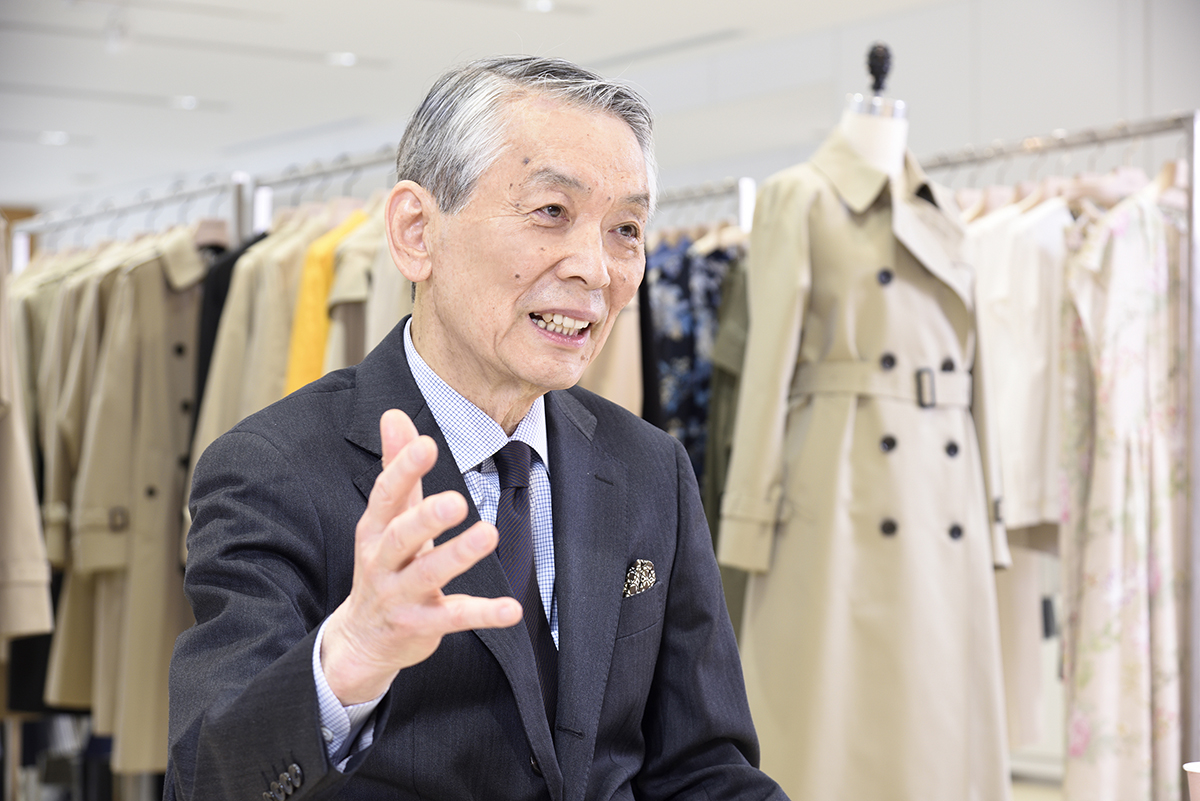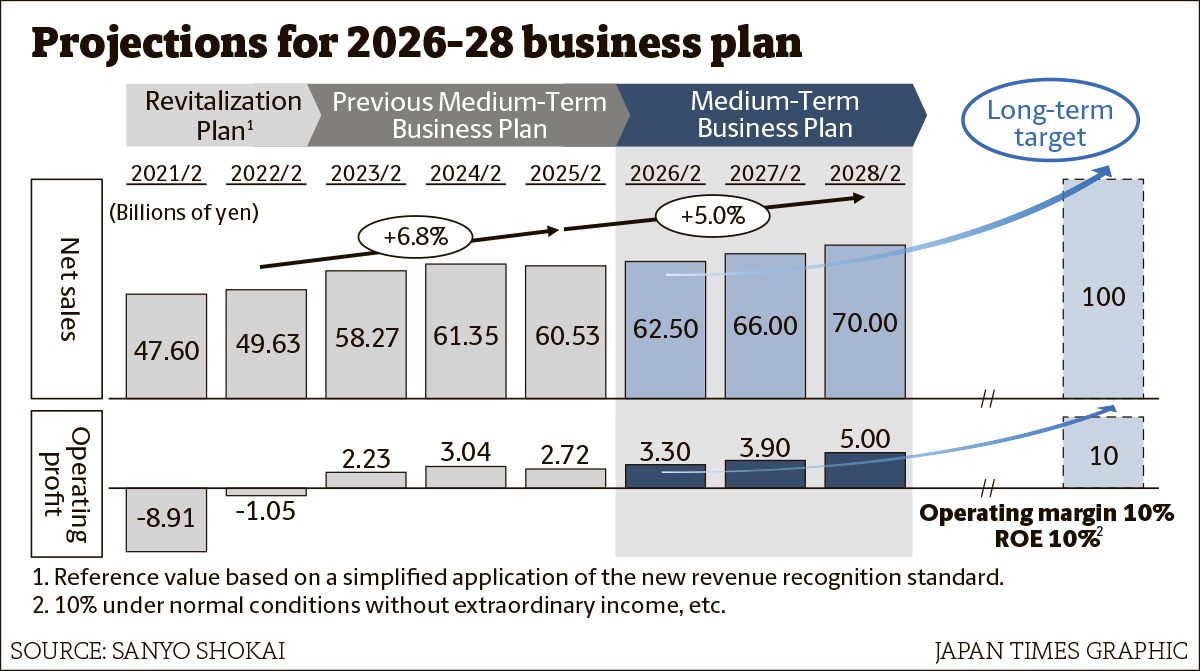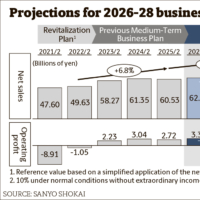Sanyo Shokai Ltd., a Japan-based apparel manufacturer and retailer with a history of over 80 years, confirmed in its reports for the fiscal year ended in February that it hit its targets for operating profit margin and return on equity.
In a recent interview with The Japan Times, Representative Director, CEO and President Shinji Oe shared his insights about the company’s new three-year medium-term business plan, which is part of its introduced longer 10-year strategy.
To gain a competitive advantage and become the top performer in the tier between luxury and middle class in Japan’s apparel market, Sanyo Shokai has set several long-term numerical targets, including sales of ¥100 billion, an operating profit margin of 10%, and a return on equity of 10%.
Oe stated that the fundamental principle behind the three-year plan, formulated to help achieve its long-term goals, is to enhance the profitability of each brand.
“But mere expansion without substantive quality improvement would diminish our brand value. I believe that prioritizing product quality enhancement will consequently drive sales growth,” he said.

Oe further noted that the company will pursue product planning that integrates new elements each season while upholding the brand’s philosophy and core values, and that it will invest in promotion to effectively communicate this. The company is also intensifying its efforts to establish new flagship stores and expand its presence in department stores, directly managed stores and outlets.
While aiming to achieve sales of ¥10 billion for each of its seven core businesses, including Blue Label/Black Label Crestbridge, Mackintosh London and Paul Stuart, the company employs diverse strategies to market its other brands. For example, the company’s own Sanyocoat brand has been showcased at international trade shows such as Pitti Immagine Uomo in Italy to highlight the high quality of Japanese manufacturing.
In March, the company launched Bianca, a brand dedicated to e-commerce. “We are also making efforts to increase the range of nonapparel products we offer, such as various lifestyle goods, while enhancing our licensing business,” Oe said.
Oe, who assumed his current position in 2020, has led the company through a two-year revitalization plan and the subsequent three-year medium-term business plan, which produced steady improvement. Oe said one way to utilize the investment power of the abundant cash reserves it accumulated over that time is to consider opportunities in mergers and acquisitions.

“There are various M&A methods to consider, such as acquiring assets like trademark rights, corporate acquisitions. Regardless of the size of the target company, we will be flexible in exploring possibilities, using the enhancement of our corporate value as the determining factor,” Oe said.
He also emphasized that the ability to adequately control equity is critical to achieving its target for ROE. “For this, we will not only invest in growth but also enhance returns to shareholders and employees,” he said. As part of this, the company plans to continue investing in human capital and improving working conditions and salaries.
“It is necessary to constantly review and update our human resources system to ensure that it is as realistic and reasonable as possible,” Oe said. He also revealed plans to promote participation by granting employees restricted stock, saying this will further integrate the company and its employees.
Oe believes that such diverse approaches are necessary for apparel companies. “This industry is susceptible to the impact of uncontrollable external factors such as climate change and global affairs,” he explained. He believes that as things change, a company needs to be quick and flexible.
For more information, please visit https://www.sanyo-shokai.co.jp/en/




